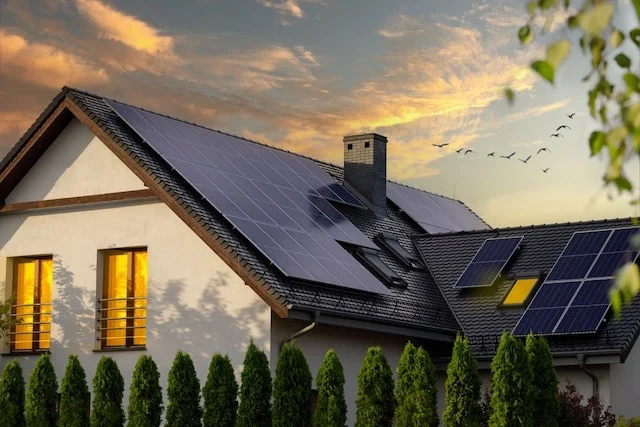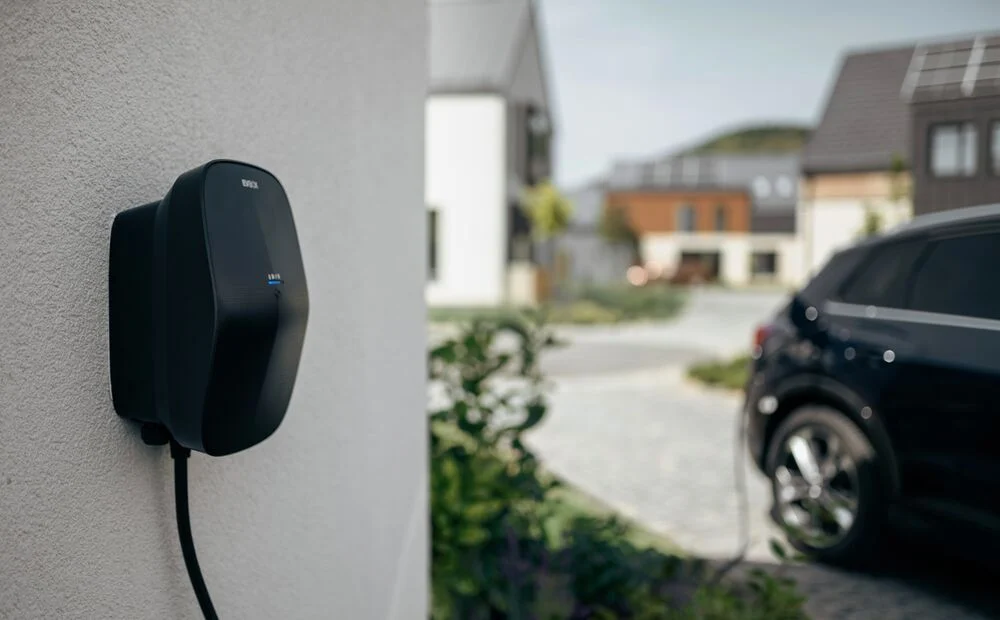A typical home solar setup consisting of ten 300W panels that receive an average of 6.02 hours of peak sunlight per day can generate about 13.5kWh of energy daily. The average electric vehicle (EV) has a battery size of around 63kWh and consumes approximately 0.20 kilowatt-hour (kWh) per kilometer or 0.32 kWh per mile. How often and how much you need to charge depends on your driving habits. On average, the American drives about 59.5 km (37 miles) a day, while in Europe, the average is slightly less.
So, if we consider an average EV driven by an average driver, it would use about 10% of a full charge each day. To replenish this using an average solar array in a country with 6.02 hours of peak sunlight per day, it would take roughly 2.81 hours of solar charging. This is quite fast for home EV charging, not only because it's 100% renewable but also because it's free.
Read our full article or jump down directly to:- How to calculate solar power generation?
- How to calculate solar EV charging times?
- What affects solar EV charging times
The rise of solar rooftops and home EV charging
As we move toward a greener world, more homeowners are installing solar panels on their roofs, generating 100% renewable and 100% free electricity. These same solar panel arrays can also be used to charge electric vehicles via your household AC charger. This is especially important as many EV drivers recharge their cars at home, and environmental concerns are a key motivator for potential EV buyers to switch to electric mobility.

Solar panels work by converting sunlight into electricity through semiconductor materials. This electricity can then be stored in batteries or converted to AC and used to charge your EV. Several factors affect the amount of electricity generated, such as the direction of the panels, tilt angle, shading, panel quality, solar insolation, and maintenance. Using an energy management system (EMS) can help regulate solar energy output and optimize charging.

Calculating solar power generation
To determine how much electricity your solar panels will generate, consider factors like peak sun hours, panel efficiency, and location. For example, a 300W panel in Mexico City, receiving 6.02 peak sun hours per day, would produce about 1.35kWh per day. A 10-panel array would generate 13.5kWh daily. The amount varies depending on your location, with places like San Diego having higher output than London.
Other appliances in your house use solar-generated electricity
Other appliances in your home also consume solar energy. For instance, a microwave uses about 0.14 kWh, an oven about 3.5 kWh, and five lightbulbs for two hours require around 0.6 kWh. Managing this with an energy management system or smart charging station can optimize solar usage for your EV.

Estimating charging times: Calculating how fast you can charge a car with solar panels
To estimate how long it takes to charge your car with solar panels, you'll need the following data: your solar array's daily output, your home AC charger's power, your EV's battery size, your average daily mileage, and your car’s energy consumption per mile. Using these, you can calculate the time required for a full or partial charge. For example, a 42kWh Fiat 500e driven 20 miles daily would require about 2.25 hours of solar charging per day.

Solar EV charging: 5 factors which affect solar charging speeds for electric cars
Several factors influence the speed of solar EV charging, including the size of your EV's battery, its charging capacity, the current state of charge, weather conditions, and the output of your solar array and home charger. Cold weather can reduce battery performance, while a larger battery requires more energy to charge. Optimizing your setup with an energy management system or battery storage can improve efficiency and reliability.

Conclusion: Is solar EV charging worth it?
While some EVs can be recharged daily using solar power alone, others may require multiple days. However, combining solar with grid electricity can provide timely charging while reducing costs and your carbon footprint. Adding battery storage can further enhance the viability of your solar-powered EV charging setup. Overall, solar EV charging is a cost-effective, sustainable, and efficient way to power your electric vehicle. Learn more about home solar EV charging on our blog.


Food Blender,Small Food Blender,Fruit Blender,Blender Food Processor
Jiangmen Sanxin Appliances Co.,Ltd , https://www.sanxinfty.com